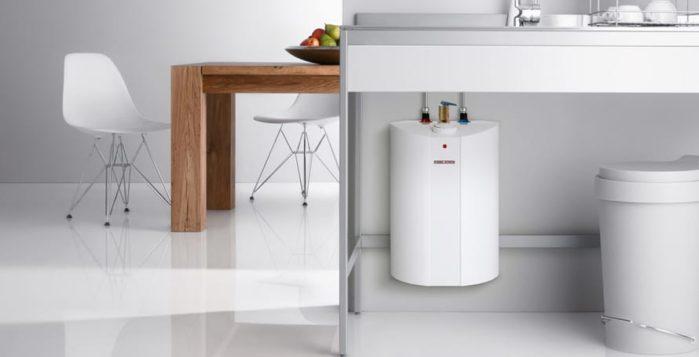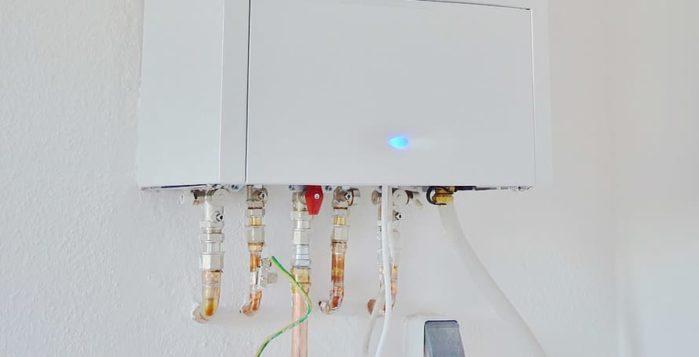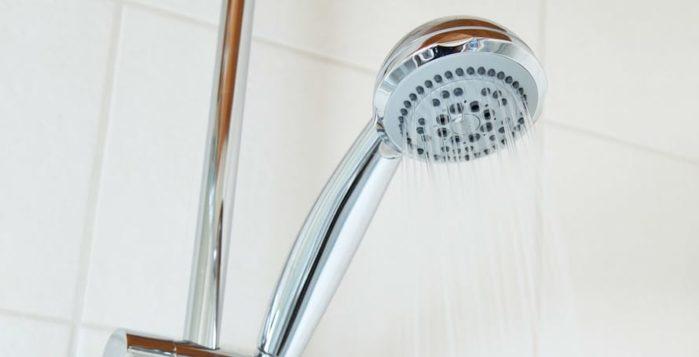
Water Heater No Hot Water, Too Hot Water?

How to Repair an Electric Water Heater
If you’re considering getting an electric water heater, there are a few things you need to look out for.
Electric water heaters resemble their gas-fueled counterparts. Both heaters use a steel insulated storage tank jacket (as well as insulation between the tank jacket and the storage tank to minimize loss of heat from the heated water).
The big difference between electric water heaters and gas is, of course, the source of the heat.
In a gas water heater, a gas burner heats the water from below the tank. Electric water heaters, on the other hand, has upper and lower heating elements that extend right into the tank, heating it throughout.
Often, when there is little to no heat coming from the hot water heater, it’s due to a failed heating element.
It’s not a major concern though, as it’s an inexpensive part that’s quite easy to replace. Other electric water heater issues are usually due to high water pressure in the home, neglecting maintenance, or an improper setting on the heater.

Issues with Electric Water Heaters
Here Are 3 Common Electric Water Heater Repairs To Look Out For (Including Tips On When To Call A Technician)
First and foremost, before you get your hands dirty trying to figure out what’s going on with your electric water heater, you have to make sure you take the proper safety precautions.
Electric water heaters have a very high voltage (240-volt). They can be extremely dangerous to work on if the power is turned on.
Before having a look at any electrical parts of your water heater, turn off the power. You can do this by heading to your breaker box (service panel) and turning off the water heater breaker.
Another tip is to test the wires in your water heater before touching any wires. You can do this by purchasing a non-contact voltage tester to test each wire.

Water Heater Has No Hot Water
Issue #1: There’s No Hot Water
This is the most common problem you’ll come across. It usually starts with someone yelling from the shower.
Often, when there’s no hot water, it’s usually because the heater doesn’t have power. Check your water heater’s circuit breaker at the breaker box to double-check if the breaker tripped. If it has, turn it off, then turn it back on again.
If the breaker for the heater hasn’t tripped and it still appears to be in the on position, then you’ll have to head back to the heater to reset the high-temperature limit.
Here’s how you can reset the limit:
- Switch the breaker to the water heater’s circuit off at the breaker box
- Take the access panel off of the top heating element on top of the water heater.
- Take away the insulation and plastic safety guard (make sure you don’t touch any wires or terminals).
- Press the high-temperature cutoff. It’s a red button located right above the top thermostat.
- Put the plastic safety guard, insulation, and access panel back on.
- Go back to the breaker box and turn on the heater’s circuit breaker.
If you check your heater and it’s still not heating up, then test each element and if one doesn’t work, then replace it.

Water Heater Not Hot Enough
Issue #2: There’s Some Hot Water, But Not Enough
If you have hot water, but you’re noticing that you’re running out quicker than you usually do then you have an issue.
One reason could be that your electric water heater isn’t big enough to meet the demands of your household consumption. Double-check that the demand doesn’t exceed the water heater’s capacity.
Your water heater should have ¾ capacity as hot water. For instance, a water heater with a 40-gallon capacity is big enough for 30 gallons of demand.
If the demand is too high for the capacity, (above ¾ capacity), you can try to reduce time in the shower (or have a low-flow showerhead installed), and try not to do all of your laundry and dishes at the same time. Make a schedule, or at least try to spread out these demanding tasks in intervals throughout the day.
If your unit is meeting the demands, or it drastically produces less hot water than usual, a heating element (or both of them) could have failed.
If you only get lukewarm showers, then it’s most likely an upper eating element issue. If you get hot water, but it runs out quickly, it’s usually the lower element that needs replacing.

Water Heater is Too Hot
Issue #3: The Water Is Too Hot
When you’re going for a nice glass of cold water, or you’re washing some vegetables before you cook dinner and there’s no cold water, it can be very frustrating.
This problem is usually because the heater’s thermostats setting are too high.
Here’s how you can check and adjust the settings:
- Turn off the breaker to the water heater at your breaker box.
- At your heater, take off the access panel, insulation, and safety guard from both heating elements.
- Use a non-contact voltage tester to test the wires (to double-check the power is off).
- Look at both thermostats. Both should be at the same temperature setting (should be between 115 and 125 F).
- Get a flathead screwdriver and turn the first thermostat to reach the right temperature.
- Adjust your other thermostat to the same temperature.
- Put the access panel, insulation, and safety guard back on each element.
- Turn the breaker back on.
For the most part, when an issue arises with an electric water heater, it’s pretty straight forward to repair at home by yourself.
However, if you have tried the above methods, and there are still issues, it’s always best to call in a professional.
Or, if you aren’t prepared with the right tools before putting your hands to work, you are also putting yourself at risk of causing costly damages, or even worse, harming yourself. Whenever you’re unsure, or unprepared, call a professional.
If you’re still unsure about standard gas or electric water heaters, consider replacing it. There’s plenty of electric tankless water heater reviews online that are super energy efficient and not too expensive.
They’re energy-efficient and a lot smaller than standard hot water tanks, and they’re growing in popularity among homeowners today.
What would cause a hot water heater to stop working?
If you have a gas hot water heater, then your problem may be caused by a leak in the gas line leading to the appliance. In the case of not enough hot water, or hot water that is not hot enough, it may be that you need to replace the heating element on your water heater. Sediment buildup.
How long does an electric water heater last?
While gas water heaters typically last 8-12 years, electric water heaters have a longer life expectancy, lasting on average 10-15 years.
YouTube Video on Troubleshooting Electric Water Heaters in MINUTES ~ Step By Step
YouTube Video on No Hot Water: Electric Water Heater Troubleshooting
I'm so excited to tackle all my home improvement projects! From plumbing to DIY and cleaning - I'm ready to get down to work! #homerepair #homecleaning #plumbing #diy #fixerupper #realestate #renovation #interiordesign #farmhouse #diy #homedecor #hgtv #home #farmhousedecor #modernfarmhouse #farmhousestyle #fixerupperstyle #fixandflip #homerenovation #realestateinvesting #beforeandafter #homesweethome #remodel #realestateinvestor #interior #realtor #joannagaines #flippinghouses #countryliving #design #homedesign #farmhouseinspired #investmentproperty #bhghome #renovationproject #farmhousekitchen #homeimprovement #farmhouseliving #cottagestyle #decor #realestateagent #magnoliahome #homeinspo #magnoliamarket #kitchendesign #dreamhome #shiplap #construction #houseflipping #investor #farmhousedesign #architecture #farmhousechic #homereno #rusticdecor #reno #kitchenremodel #webuyhouses #magnoliatable #rentalproperty #fixerupperinspired #newhome #interiors #homeremodel
